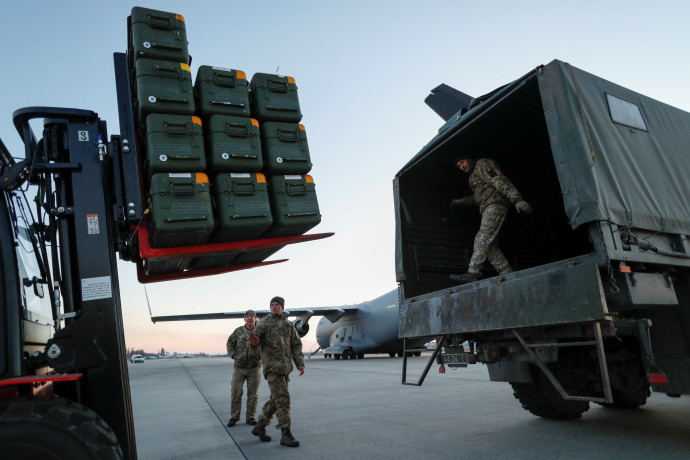China has resurrected memories of a 1999 bombing in Belgrade which most in the West have likely forgotten. In the context of the Ukraine war, China has brought up the bombing by NATO of its embassy. Beijing said the 1999 incident was a “barbaric atrocity” the country will not forget, according to Chinese and Iranian media.
“The Chinese people will never forget NATO's bombing of the Chinese embassy in Belgrade in 1999,” Chinese Foreign Ministry spokesperson Zhao Lijian said on Friday, according to state-run CGTN international English-language cable TV.
“On May 7 twenty-three years ago, the US-led NATO bombed the Chinese embassy in the Federal Republic of Yugoslavia, killing three Chinese journalists and injuring more than 20 Chinese diplomats,” the report said. “The Chinese people will never forget such barbaric atrocities of NATO and will never allow the historical tragedy to be repeated,” Zhao said.
China has referenced this attack in discussing NATO expansion. These are powerful words because it appears to be expressing concerns similar to those of Russia.
NATO had "repeatedly violated international law and wantonly waged wars against sovereign countries, undermining world and regional peace and killing and displacing a large number of innocent civilians," the Chinese Foreign Ministry spokesperson said.

Beijing is now saying that NATO had been moving eastward toward Russia, repeating the Moscow line that the Western military alliance has conducted numerous waves of expansion and this is what has provoked the Kremlin.
China is hinting that the US is now engaged in a new Cold War mentality. "The United States and NATO should take concrete steps to make solid contributions to world peace, stability, and development,” the Chinese statement said.
IRANIAN MEDIA reported the Chinese statements because Iran also wants to join Russia and China in opposing the West’s global role. The three superpowers, along with other countries oppose US global hegemony. America had that hegemony in the 1990s and worked with NATO in the Balkans then, in what is sometimes seen as a high point of the “new world order” that was created in the aftermath of the Cold War.
As the sole global hegemon, the US was able to experiment with being a kind of global policeman, and also use humanitarian intervention as an excuse to go into places like Somalia, Haiti, and other countries. But after the 2003 invasion of Iraq and the Global War on Terror, the US role in the world was increasingly challenged.
The Russian invasion of Ukraine is thus symbolic. China is watching closely, as is Iran.
The statements from China are evidence of this. Iran’s media, for instance, says that “despite warnings from China and Russia about NATO expansion, which has exacerbated tensions in Europe, the organization continues to pursue expansionism and militarism in Eastern Europe, with Finland and Sweden joining the organization.”
An article at Global Times in China has articulated the views of Beijing on these matters. “Without reflecting on the disastrous results of the current Ukraine crisis, which was caused by its eastward expansion, US-led NATO is working to bring Finland and Sweden into the alliance and increase its presence in the Asia-Pacific region.
"As Saturday marks the day to honor martyrs killed in the NATO bombing of the Chinese Embassy in the former Yugoslavia 23 years ago on May 7, the Chinese people will never forget the barbaric atrocities of NATO – and analysts warn countries, especially those in Asia, to keep on high alert when it comes to NATO's expansion and confrontation,” the article notes.
“NATO is using the opportunity to expand in Nordic countries and globally, which has raised growing concerns over security,” an analyst was quoted as saying, according to the article.
“It is obvious NATO is using the Ukraine crisis to seek its enlargement globally, especially in Asia, or to include more topics of Asian countries,” Li Kaisheng, research fellow and deputy director at the Institute of International Relations of the Shanghai Academy of Social Sciences, told the Global Times.
THE ARTICLE goes on to point a finger at South Korea and Japan as examples of NATO partners. China is concerned that the Western military alliance may now be expanding globally.
“South Korean and Japanese foreign ministers were invited to join the high-profile NATO session in April for the first time as NATO seeks to gain cooperation from Asia to isolate Russia and pressure China over the Ukraine crisis,” the report says, adding that South Korea’s intelligence agency had joined the NATO Cooperative Cyber Defense Center.
“By cooperating with South Korea's spy agency, the US-led NATO is attempting to turn the Northeast Asian country into a chess piece to contain China and Russia in the realm of cyber defense,” the article says, claiming that the alliance is taking a tougher tone against China.
Meanwhile, reports say that the leaders of Japan and Thailand announced a new defense agreement on Monday, according to CNN. A report said that the two countries now plan to upgrade economic relations. “The agreement would facilitate the transfer of defense hardware and technology from Japan to Thailand, which has one of the region's biggest and most equipped armies and a long history of ties with the United States military.”
These statements, op-eds, analysis pieces, and other discussions in Chinese media, printed now in English, illustrate how China is beginning to think about NATO, the Ukraine war, and what is happening in Asia.
While China and the US have had harsher tones in relations with each other, there is now a growing global consensus on where this is heading. China is expressing more understanding of Russia’s policy, even while it has not supported Russia’s invasion of Ukraine.
The point is that China is now closely watching any new arrangements by NATO in Asia and also how it may be expanding in Europe.
